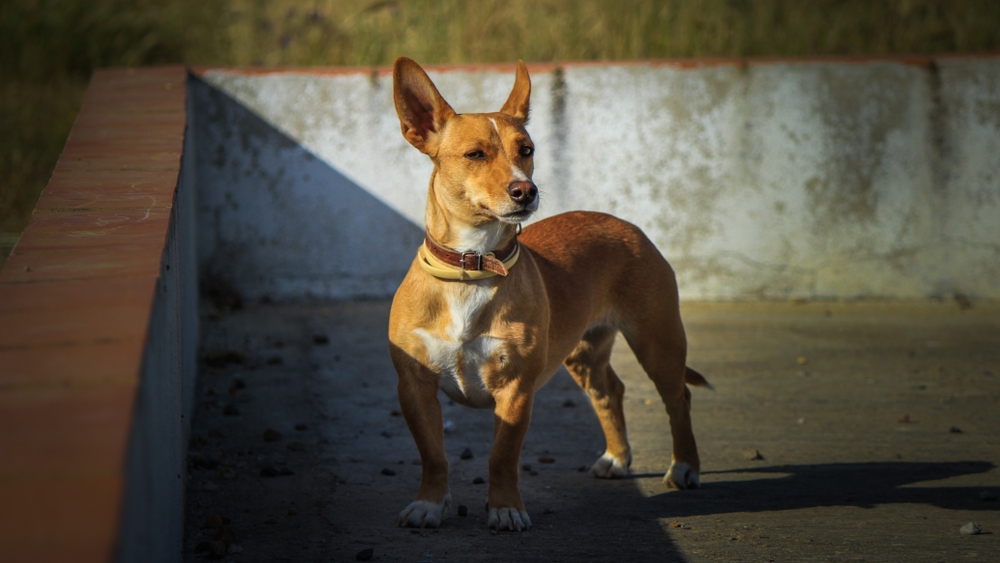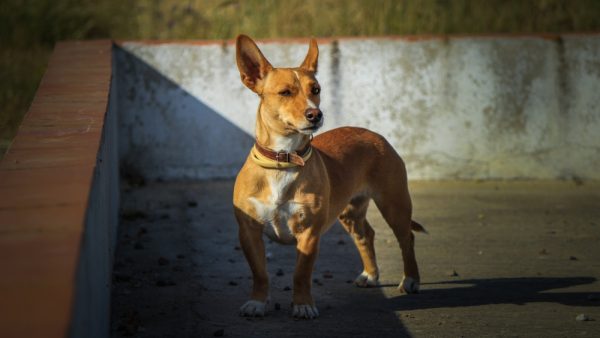Click Below to Skip Ahead
This adorable hound is known for their athletic rabbit hunting abilities. This is an ancient breed that was utilized for hunting and still is used for that purpose today.
Breed Overview
Height:
8 – 12 inches
Weight:
9 – 13 pounds
Lifespan:
12 – 15 years
Colors:
Practically anything
Suitable for:
Active families with older kids
Temperament:
Active, alert, focused
The Podengo Pequeno is the smallest of the three Podengo breeds, usually weighing no more than 13 pounds. They have distinctive heads and erect, pointy ears. Their long body is also quite muscular, with a sickle-shaped tail.
Usually, their coat is short and dense, though it can also be long and wiry. Generally, they look quite rustic and have a no-nonsense appearance.
Portuguese Podengo Pequeno Puppies
These puppies are quite rare. They are not the most popular rabbit-hunting dog and are usually only owned by hunters who have been using these dogs for generations. You may need to import them, as few are bred in the United States.
For a small dog, this is quite expensive breed. Small dogs are typically cheaper to breed, so they cost less to buy. However, in this case, the breed is rare, which drives up the price substantially.
Temperament & Intelligence of the Portuguese Podengo Pequeno
First and foremost, the Portuguese Podengo Pequeno is a hunting dog. They were bred to hunt rabbits, and much of their temperament is based on this fact.
For instance, they tend to be quite high-energy. They are small, hyper dogs that need plenty of physical exercise to stay happy. Otherwise, they may become destructive.
They are extremely playful and love playing with humans as much as possible. For this reason, they are perfect for most active families.
They also have high mental stimulation needs. They were bred to be in the field working their minds every day. Without this constant stimulation, they can quickly become bored. Therefore, these dogs are best for hunting families that are going to use them for what they were bred to do.
If you aren’t going to take them hunting, it’s best to provide them with plenty of mental stimulation. You can purchase puzzle toys or simply take them on long walks.
These dogs love to sniff around, so long walks with plenty of smelling time are great options.
While these dogs are small, they are not considered yappy. They may make good alert dogs in some cases, as they tend to be quite alert. However, they are not nearly as noisy as some other dogs out there.
They don’t tend to be very trainable. They were bred to chase and follow rabbits, which didn’t require any input from a human. Therefore, they weren’t bred to listen to their owners and still don’t do a great job of it today.
These dogs aren’t super accepting of strangers, but they aren’t intolerant either. Therefore, they need quite a bit of socialization at an early age. Otherwise, they may be a bit aggressive and unsure of strangers.
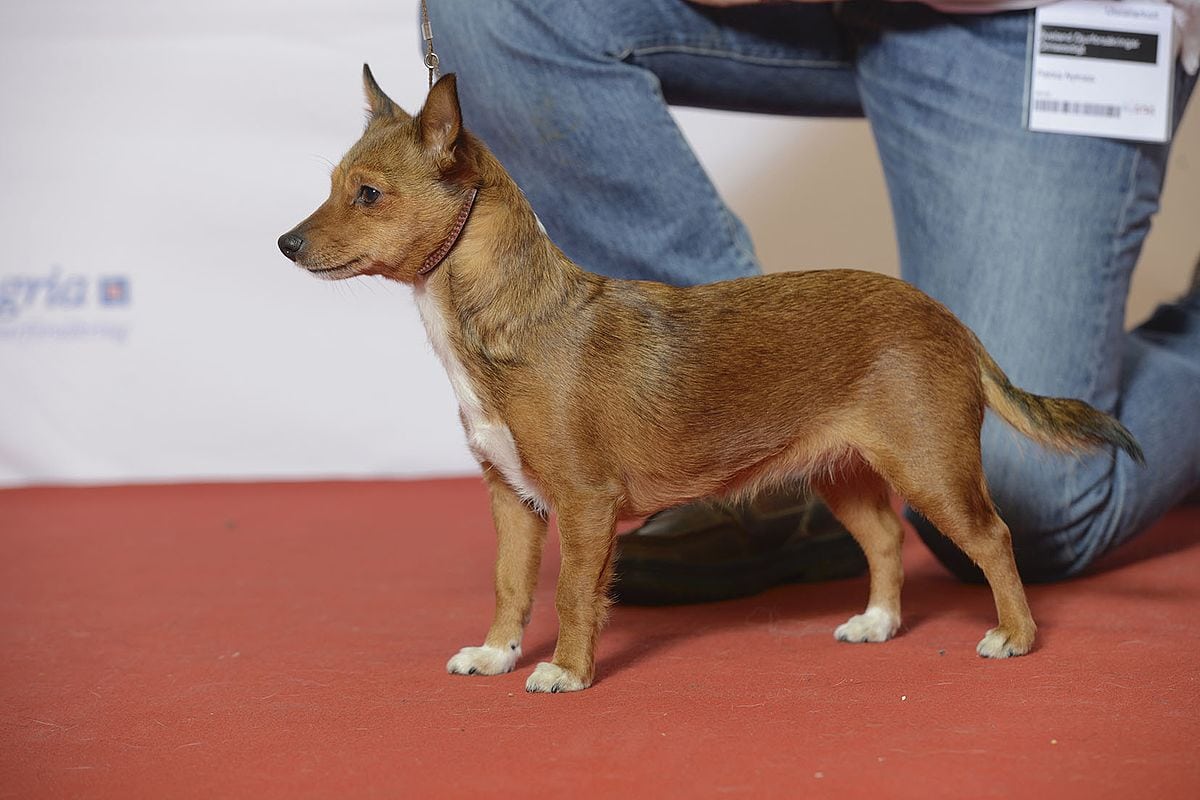
Are These Dogs Good for Families?
These dogs are perfect for active families that are looking for a smaller companion. They are far more active and adaptable than most small dogs out there, making them able to tackle hiking trails with success, for example. They’re also a great dog to adopt as a hunting companion.
However, they aren’t necessarily great for small children. These dogs aren’t the friendliest, so they will require early socialization with children. That said, they can still be easily injured by small children due to their size. A child could fall or accidentally step on them.
For this reason, fear-based bites are far more common. These dogs are likely to lash out if they are hurt.
Therefore, we recommend them for older children particularly. If the child is old enough and coordinated enough to not harm the dog, they will likely be best friends, especially if the older child is on the more active side.
Does This Breed Get Along With Other Pets?
Due to their extremely high prey drive, this breed is not suitable for homes with small pets. They will chase cats and just about anything else that is smaller than them (and even things that are larger than them). Even socialization doesn’t do much to curb this issue.
However, they do get along with other dogs most of the time. We recommend introducing them to other dogs at an early age so they are used to socializing with others.
They are typically fine with dogs that they have grown up with.
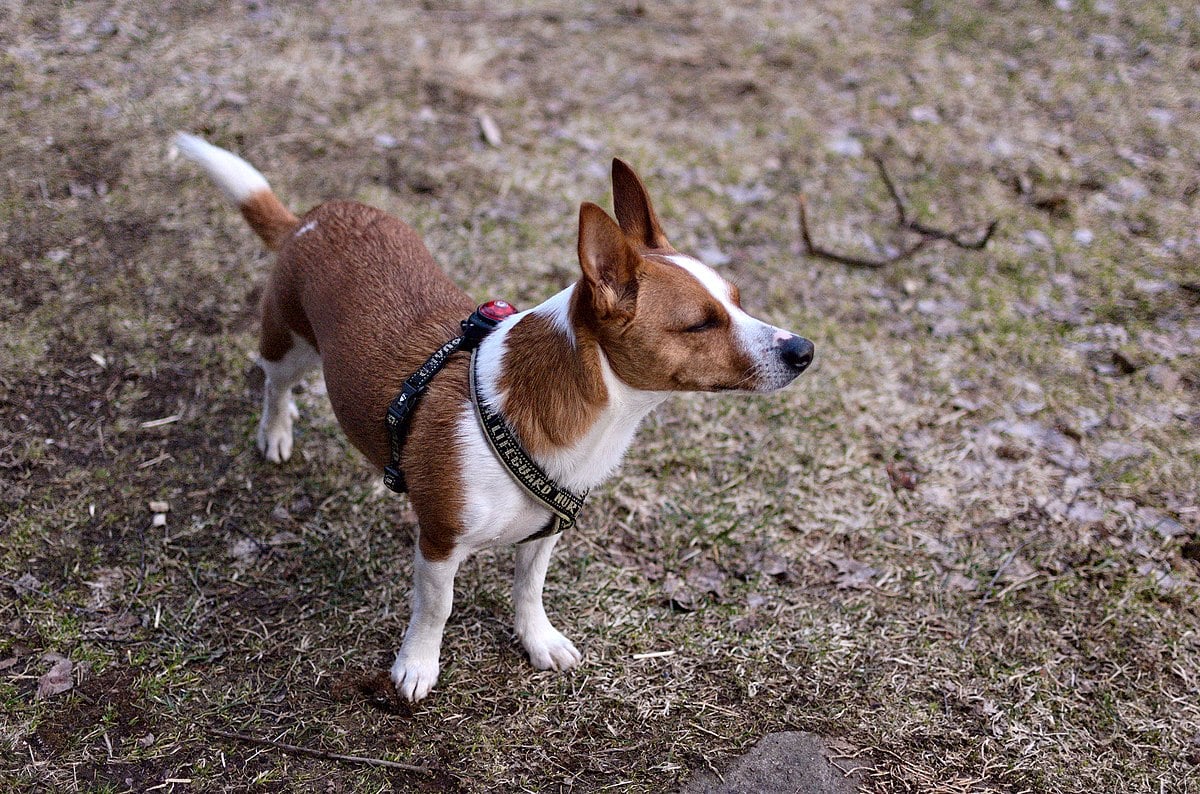
Things to Know When Owning a Portuguese Podengo Pequeno
Food & Diet Requirements
This tiny canine does not have any specific dietary requirements. For this reason, they can thrive on just about any commercial dog food out there. We do recommend choosing one that is specifically for small breeds.
Since small breeds are prone to certain diseases, small breed dog food is often designed to counteract these issues. Of course, this canine is not particularly prone to too many diseases, so they will likely not get as much out of these dog foods as some other breeds.
However, small breed dog food usually has a small kibble size too, making the food easier for small dogs to eat.
When this breed is a puppy, you should feed them puppy food, with small breed puppy food being the best option. Puppies need different nutrition than adults, and this puppy food ensures that your Portuguese Podengo Pequeno puppy is getting what they need to grow and thrive.
Exercise
This breed was originally created for hunting purposes, which required quite a great deal of physical endurance. Today, they still have this high energy output. Therefore, you’ll need to exercise them regularly. They require a brisk daily walk at the very least, with plenty of time for sniffing and exploring.
These dogs are well known for being tireless. Some owners complain that no matter how many walks they do, these dogs never seem to wear down. So, you should plan on regularly exercising these dogs but expect that they will still be active afterward.
For the most part, these dogs can get away with daily walks alone. However, a fenced-in yard is a great option. They do best when they are regularly allowed to run around off-leash, though their lack of obedience means that you can’t simply let them go.
These dogs do great during obedience and agility trials. Anything that requires them to be active, they thrive in. Hunting is also a great way to provide the necessary physical and mental stimulation that these dogs need.
Keep in mind that these dogs are known to follow their nose without regard to anything else. Therefore, they can get in trouble if simply allowed to roam. We do not recommend ever letting them off-leash.
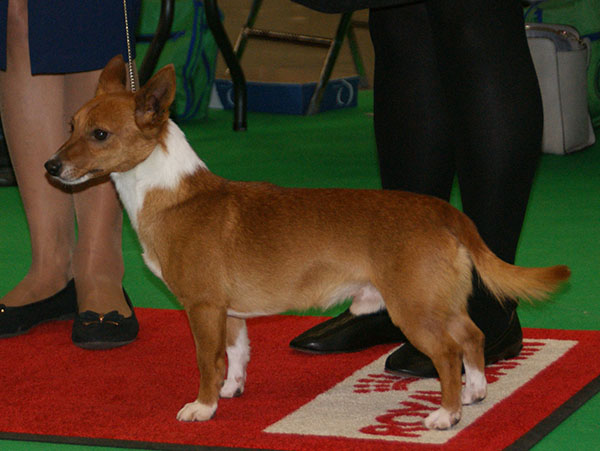
Training
This breed does not take to training well. They were bred to hunt independently without input from their owner. Therefore, obedience was not something that early breeders were worried about. For this reason, they were never bred to listen to their owner.
Today, this breed tends to be quite independent and does what they think is correct, not necessarily what you command them to do.
Still, we recommend training classes early on. While they may never be as trainable as some other dogs out there, they can still learn basic commands. They are just never going to be dogs that you can trust off-leash or with serious instructions.
Socialization is extremely important for this breed. While they aren’t blatantly aggressive, they aren’t super friendly either. Therefore, it’s essential that they are taken around to see many different people at an early age. Otherwise, they may be fearful of strangers and other dogs.
Be sure to include socialization as a key part of their training. They aren’t difficult to socialize, but it still needs to be done.
Grooming ✂️
Since they were bred for purely practical reasons, this breed is not particularly high-maintenance when it comes to grooming. The exact grooming that they need will depend on the coat type that they have.
You should plan on brushing a dog with a wire coat at least once a week. This brushing session will help keep the dog clean and prevent tangles, which can eventually turn into mats if you are not careful.
For smooth-coat dogs, brushing is more about cleaning their coat than it is about preventing tangles. However, you may still choose to give them a quick brushing down once a week to remove dirt and dust.
You should plan on bathing these dogs somewhat regularly. A monthly bath is a good option. They are not prone to skin problems like many other breeds out there. Therefore, regular bathing won’t usually wear down their skin or anything of that sort. No clipping or shaving will be necessary.
You should brush their teeth at least a few times a week in an attempt to alleviate potential problems. Their teeth should occasionally be cleaned by a vet too.
You should also trim their nails as necessary.
Health and Conditions
- None
- Patella luxation
For the most part, these dogs are quite healthy. They were bred primarily for hunting, and no one wants an unhealthy hunting dog. Therefore, only the healthiest dogs were bred together. This has produced a very healthy dog.
That said, breeders still screen for certain health conditions. The hips and other joints are watched particularly closely. These dogs are somewhat prone to patellar luxation, which occurs when the kneecap slides out of place.
However, for the most part, these dogs are prone to few genetic issues. They are extremely healthy.
Male vs. Female
This breed is not particularly different between the sexes. Males and females are similar. There isn’t a particular size or temperament difference.
For this reason, we do not recommend basing your adoption decision on sex alone. Instead, you should base it more on the breeder. Also, since these dogs are so rare, it isn’t odd for only one to be available at a time. For this reason, we do not recommend setting your eyes on a particular sex.
3 Little-Known Facts About the Portuguese Podengo Pequeno
1. This breed is newly recognized by the AKC.
While this breed is far older than most out there, they were only recognized by the AKC in 2010. Therefore, this technically makes them a newer breed when it comes to competition.
2. They are quite healthy.
This breed is extremely healthy. They are considered a “rustic” breed, so they have few genetic problems, unlike many modern dog breeds.
3. The Portuguese Podengo Pequeno has two different types.
There are two different types of this breed, based on coat type: smooth and wire. The smooth type is the most common.
Final Thoughts
This small, adorable breed is a great option for those who are active and looking for a small dog. They are also a great breed for hunters, as this was the original purpose of the breed. As you might imagine, they are best for active families because they do have quite a bit of energy.
These dogs are not cuddly lap dogs, despite their small size. Instead, they are best for those looking for a more active companion.
Beyond their exercise needs, they are extremely low-maintenance. They don’t require substantial amounts of grooming or socialization. Plus, they are extremely healthy.
You may also find this interesting:
Featured Image Credit: nvphoto, Shutterstock

